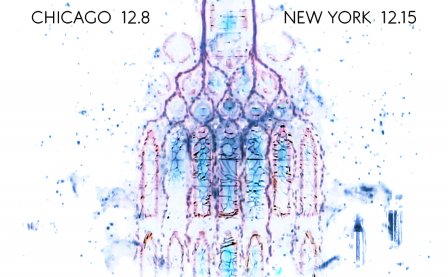It happens almost every time. Someone mentions “Strategy,” and instead of thinking about the diverse interests and output of one Paul Dickow, my mind immediately considers a non-descript indie band along the lines of Love Is Laughter or Tapes ’n Tapes. I don’t know why it happens, but it happens. I must have a few wires crossed when it comes to Strategy for some odd reason. I blame the solvents. After my brain unfuzzes, I am just as surprised as you might be reading this, because there should never be much confusion as to what, or in this case, who, Strategy is: DJ, remixer, Community Library caretaker, collector of sounds, and as evidenced on his latest album, Future Rock, an increasingly confident genre blender.
Strategy is indeed Oregon-via-Idaho rabid recorder Paul Dickow, and he has produced his most focused album yet in Future Rock. Gallivanting between electronic toy-playing, labored computer programming, and taped spontaneous performances, Future Rock is the first true look-see into the mind of this musical MacGyver. No offense against his early efforts and rad remix work, but Future Rock finally brings some semblance of a greater concept and/or vision. For all of my loonie-toon rambling about genre-blending and referencing everything except “space polka” in the trusty “Styles” aid above, Future Rock is surprisingly grounded and seamless. Despite its patchwork assemblage, it has a real soul to it, too.
“Stops Spinning” is the perfect dancefloor filler, if played at a club earmarked exclusively for slugs and sloths. Heavy duty vocodered vox and easy beats are the name of the game on “Stops Spinning” as the plea (or descriptive narration) of “Everybody in the room stop(s) spinning/ Everybody on the dancefloor stop(s) swinging…around” becomes an uneasy yet captivating mantra. Opening track “Can’t Roll Back” has a little of everything: the Strategy trademark smeared reverb and tampered-with vocals. Nearing the halfway mark of the song, we are treated to a full-tilt boogie burger with a little saucy keyboard filling. After the one-two punch of the title track and the squishy sounding “Running On Empty” are over, so is the chance you're not already hooked on the album. If that wasn't enough, there is also two beautiful “interludes” on Future Rock called “Windswept” and “Sunfall,” which are both very shoegazey in name and very reminiscent to the swaths found on My Bloody Valentine’s dreamy fuzz-pop template, Loveless, in sound. My only sticking point is that the album ends with a whisper and not a scream, but that is just a personal preference; after what has come before, most will relish the calm, cool-down that “Red Screen” and “I Have To Do This Thing” affords them.
While not exactly controversial in any way, Future Rock is daring nonetheless for its boundless sense of adventure, something we do not celebrate enough in music. Future Rock shows Dickow to be not only an enthusiastic manipulator of sound, but also a bit of an idealist, and that is rather refreshing in this age of irreverence, or staged irreverence. Equally at home as the backdrop for an art-house exhibition or the soundtrack for a knees-up on the parquet floor, Future Rock is absolutely one of the most pleasant surprises I have heard this year. I am truly sorry, Strategy. I can assure you the unconscious indie-b(l)and association I have with you will not happen again.
1. Can’t Roll Back
2. Future Rock
3. Running on Empty
4. Windswept (Interlude)
5. Stops Spinning
6. Phantom Powered
7. Sunfall (Interlude)
8. Red Screen
9. I Have To Do This Thing (Planete Sauvage Mix)
More about: Strategy




